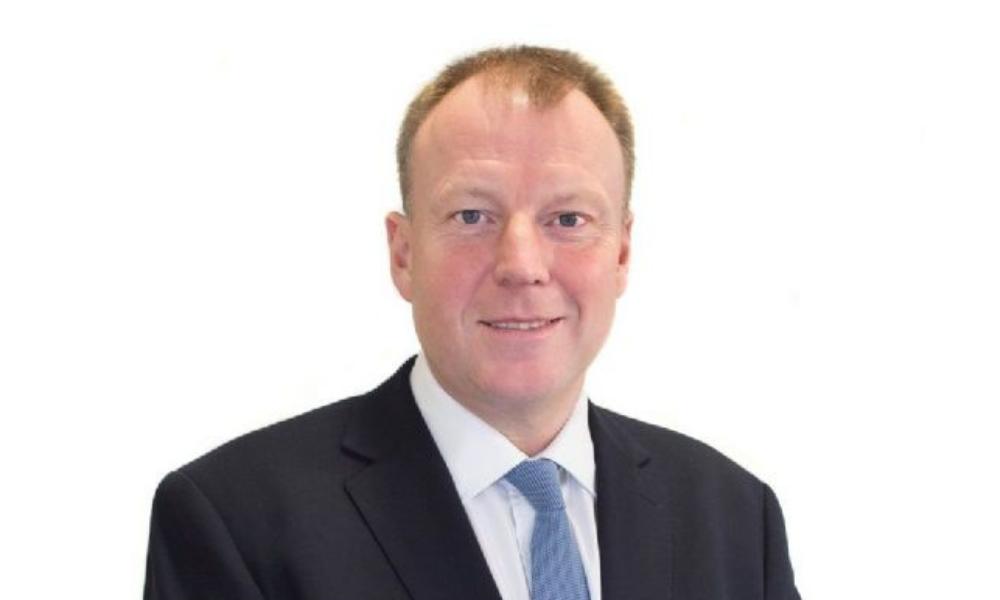Broker suggests there has been a notable turn

The post-pandemic years have seen changes across many aspects of life – and the property market hasn’t been immune. Greater numbers of buyers opted for cash purchases in the period after we came out of lockdown, but now it seems that trend is shifting.
Cash purchases have dropped sharply, according to analysis by mortgage broker SPF Private Clients, and more are favouring borrowing again, rather than putting down hard cash.
Its chief executive Mark Harris (pictured) has told Mortgage Introducer that he anticipates a rise in activity in the market in the coming 12 months, more interest from buyers and a steady growth in transactions.
For its study, SPF Private Clients – which started out as Savills Private Finance in 1997 – used data from the HM Land Registry and the Office for National Statistics to compare the percentage of properties sold as cash sales in every local authority between 2013 and 2023.
Cash sales overall have decreased, with ONS data showing 186,000 sales in England last year, down from 254,000 in 2013, which it suggests may be down to higher property prices and the elevated cost-of-living, leaving people with less disposable cash.
Harlow, in West Essex, saw the largest decrease in cash purchases for housing between 2013 and 2023, with a 44.9% decrease, while, at the opposite end of the UK, Inverclyde in Scotland saw the largest increase, with a 39.4% jump in the percentage of properties sold outright.
“Outside London, there has been a growing trend of cash purchases post-pandemic, perhaps due to the savings some people were able to build up during COVID and choosing to use these rather than opt for more expensive borrowing,” Harris observed. “With properties in London and the south-east costing significantly more than elsewhere, they tend to be unaffordable for certain cash buyers such as retirees who prefer to own outright.
“When mortgage and interest rates are relatively high, it makes sense for those who have the cash to use that to make their property purchase, rather than borrow. The opposite is true when rates are low. We are in a relatively high interest rate environment although the first rate cut has come and the signs are that there will be further reductions in the pipeline. As mortgage rates grow more competitive this is likely to encourage buyers to turn to borrowing once more. These things go in cycles.”
What’s happening with rates in the mortgage market?
There continues to be some uncertainty in the market – some smaller lenders have increased their rates in recent days, in response to a rise in gilt yields and swap rates, and comments from the Governor of the Bank of England, indicating his expectations for larger or more frequent rate reductions. Geopolitical tensions, particularly concerns about the Middle East conflict, are also a factor.
Still, Harris, who was a previously a consultant at broker John Charcol, believes that as rates generally edge downwards, more borrowers will meet affordability criteria, so stimulating business.
“However, the days of rock bottom rates are long gone so those holding off for similar are likely to be disappointed,” he cautioned. “The mainstream mortgage market has picked up over the summer after the election and the interest rate reduction, with buyers and sellers who may have been sitting on their hands for a while finally taking action. But at the top end it is quieter as people wait for the budget with some trepidation and this could impact the market in the final quarter of the year.
“Lenders are keen to lend, as can be seen by their tweaking of fixed-rate mortgages downwards. There has also been a relaxing of criteria with Nationwide offering up to six times income for first-time buyers and some reducing of rates for higher loan-to-value deals, so lenders are doing their bit to stimulate transactions."
Read more: Major lender raises interest rates for new and existing customers
How is investor behaviour changing?
Harris believes economic uncertainties and market fluctuations have made investors more cautious, driving them away from London. Additionally, the shift to remote working for many has further encouraged people to live outside major cities, with investors looking at alternative regions.
As the market picks up, he considers it important for brokers to keep in close touch with existing clients.
“Regularly keep them informed as to what is going on in the market, rate movements, how you can help them and their friends and relatives,” Harris urged. “Make sure you are in touch well before they come to the end of an existing deal and once you have selected a deal for them, make sure it remains the most competitive offering, particularly when rates are being reduced at short notice.”



